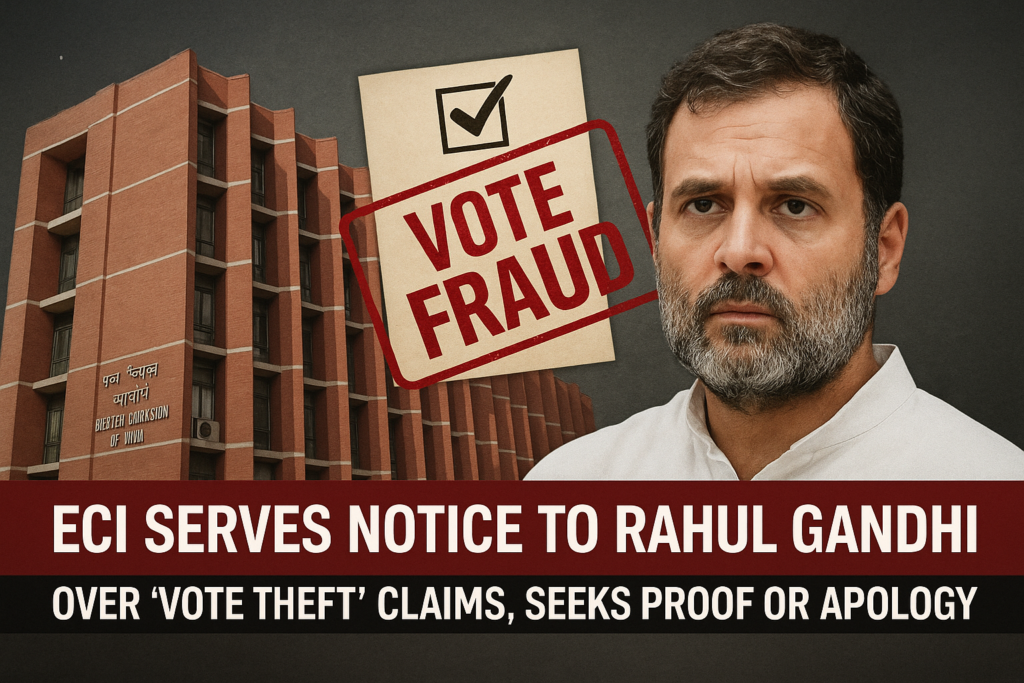
The Election Commission of India (ECI) and the Karnataka Chief Electoral Officer (CEO) have issued fresh notices to Congress leader Rahul Gandhi, asking him to provide concrete documentary evidence for his recent allegations of large-scale voter fraud, which he termed “vote chori” (vote theft).
Background of the Allegation
Rahul Gandhi, during a public address and social media posts, alleged that in the Mahadevapura constituency of Karnataka, a voter named Shakun Rani had cast her vote twice during the 2024 Lok Sabha elections. He also claimed the existence of widespread irregularities and fake voters in the electoral rolls. According to Gandhi, these details were backed by data from the Election Commission’s own system.

ECI’s Stand
The ECI has rejected Gandhi’s allegations, calling them “false” and “absurd”. In its official communication, the Commission stated that the document Gandhi displayed—allegedly showing a tick mark against the voter’s name—was not issued by a polling officer.
The Commission has asked Gandhi to either:
Submit an affidavit under oath affirming the authenticity of his claims, along with supporting documents, or
Issue a public apology for spreading what it calls unverified and misleading information.
Karnataka CEO’s Notice
On August 10, 2025, the Karnataka CEO formally served Gandhi a notice to furnish proof, specifically regarding the claim of double voting by Shakun Rani. This follows an earlier notice in July, when the Congress had also alleged over one lakh fake voters in Mahadevapura.
DIGI MERCH STORE PRINT ON DEMAND

Political Reactions
Congress Response: Senior leader KC Venugopal defended Rahul Gandhi, saying the claims were based on official data from the ECI itself. “We are not afraid of any notice. We stand by our evidence,” he said.
Ashok Gehlot’s Remarks: Former Rajasthan CM Ashok Gehlot called the ECI’s affidavit demand “utterly absurd” and maintained that Gandhi had already placed the information in the public domain.
Why This Matters
The controversy has sparked a fresh political flashpoint ahead of key state elections. While the ECI insists on preserving electoral integrity and penalising false claims, the Congress sees the notices as an attempt to stifle genuine concerns about voter fraud.
With both sides refusing to back down, the matter could escalate into a prolonged legal and political battle, potentially influencing the tone of the upcoming election campaigns.
Comment:














